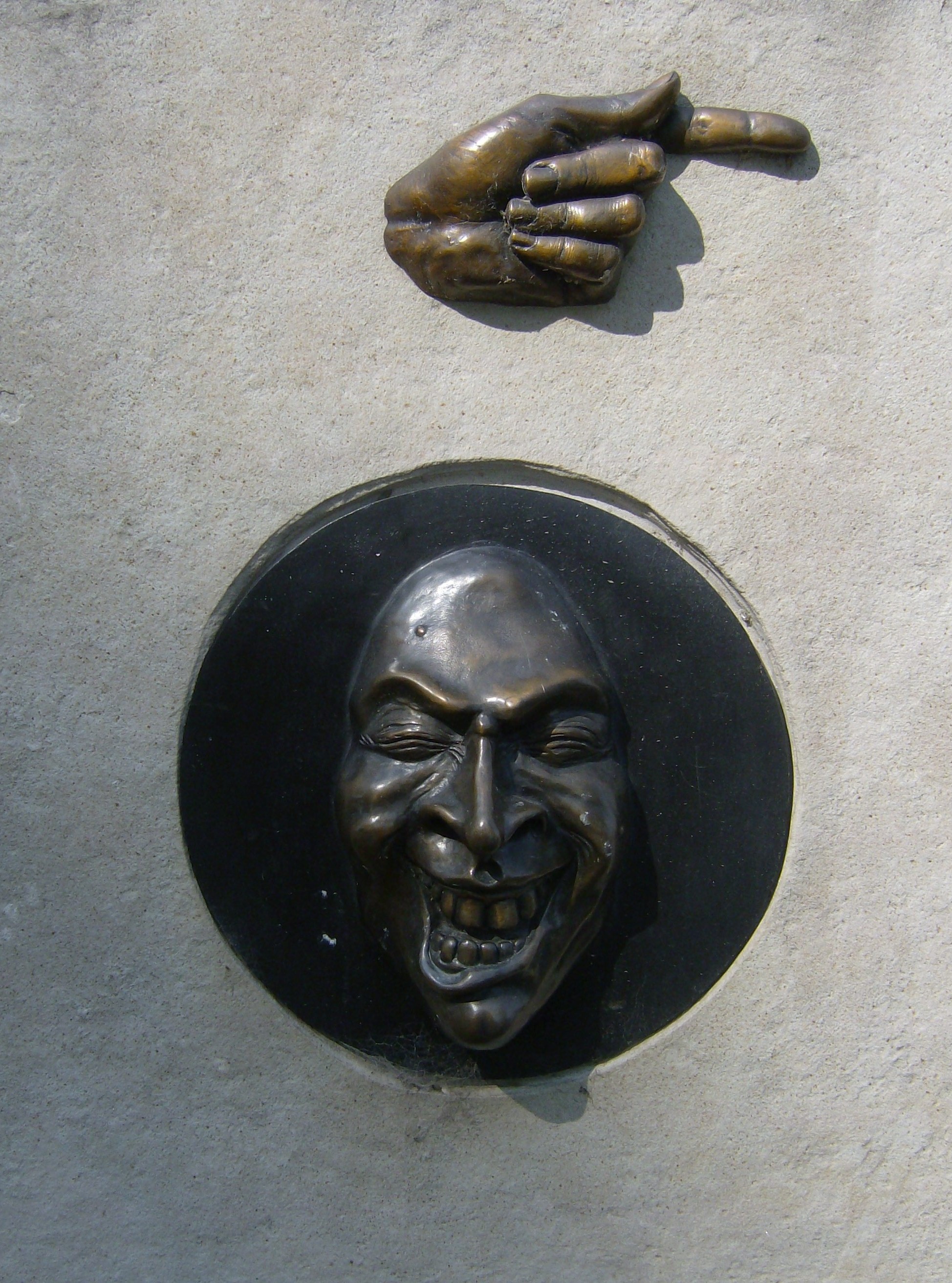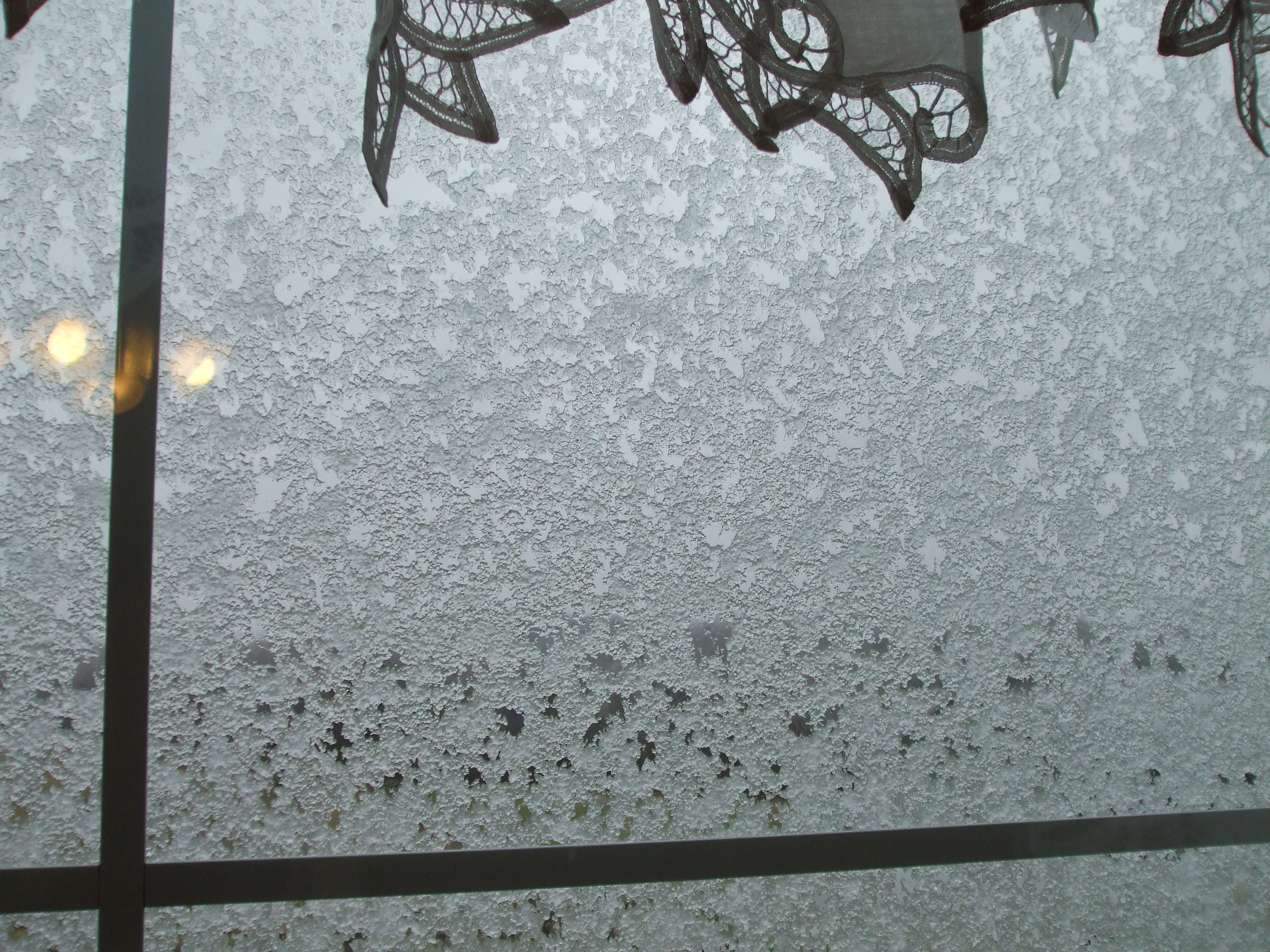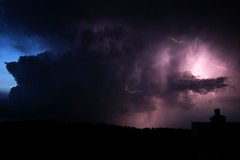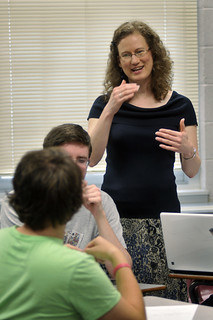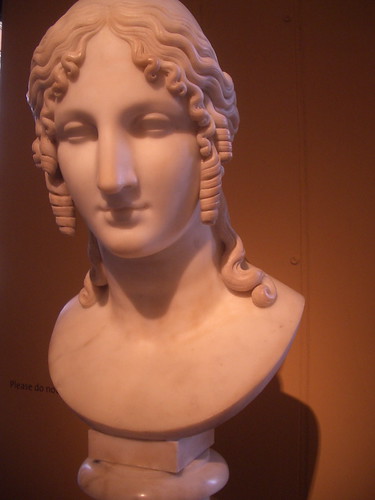 |
| Our wedding, July 5, 1986 |
Three years ago October I lost my wedding ring. Mid-afternoon on Wednesday I was aware of it
on my hand, and mid-morning Thursday I realized it was not.
I had been switching out summer and winter clothes as cold
weather was settling in in Western Pennsylvania—pulling short-sleeve,
lightweight garments off my hangers and out of the drawers and hauling big
plastic tubs of heavy sweaters around in my room. Some things went into the
dryer for freshening up; some things went into piles for Salvation Army. And
somehow in the midst of all that my ring slipped off my finger.
My husband had designed the engagement ring for me in yellow
gold. The diamond—a modest weight but of high quality--seemed to float between
two swirls like hands curling around it from either side, and later the jeweler
made a wedding band to follow the curves. The slender band broke shortly after
our honeymoon, so we had the two pieces soldered together. I wore it for 23 years.
The Thursday I realized I’d lost it I dedicated myself to
going through every pile and tub and drawer, everywhere it might have fallen. I
took almost everything out of my closet and crawled along the baseboards, listened
to sounds in the vacuum as I passed the nozzle everywhere I could think of, retraced
my steps in the house and garage, dug into the car I was driving when I
realized it was gone. Nothing. I held
back the Salvation Army donation bags until I had a chance to sort through them
again and finally released them. When spring came and I switched out clothes
again, I searched everything again. No.
And the next fall and spring. No. And
the third fall, no. Nor spring.
I finally filed an insurance claim a year ago, complete with
my loving memory of the details of the ring and a photo from our wedding album—my
hand, a beaded lacy point from my wedding gown, orchids, my husband’s gold-ringed hand next to mine. The insurance company sent a check, but we
just didn’t have the heart to shop for another ring.
Meanwhile I’d been wearing my grandmother’s large diamond in
a white gold setting, with a diamond wedding band—lovely but not mine. My heart sank regularly when I considered
what we had lost, what it symbolized, its beauty. Regularly I prayed that we
might somehow find it. One day this summer I prayed like that, while walking on
a country road: “Lord, if that ring is
anywhere out in the world, somehow, by some means, could we find it?” Even as I
prayed that, other things crowded into my mind, hopes so much more important
than recovering a piece of jewelry that I was ashamed to pray for its return.
But I knew the Lord knew my heart—the hope of the ring became a pledge I made to believe Him for the other things.
A few weeks ago our oldest daughter became engaged, her diamond
ring a delicate antique art deco filigree in white gold, and last week I drove to
town to buy some gifts for her kitchen. I stopped in a local store where a
particular clerk always calls out my name with a smile as she sees me coming.
She knows my husband better because he stops in more often than I do. But she
always cheers my heart. As she rang up my order I just happened to look at her
right hand and saw what looked like my lost wedding ring! I could not believe
it and looked again, then looked up at her—I know in shock—and asked where she
got it, how long she’d had it. She looked a little puzzled and said her husband
had bought it for her, probably five or six years ago, somewhere local but she
didn’t know where. I told her briefly how I’d lost my ring and that I was
almost sure it had gone to Salvation Army with a donation.
She said she didn’t think he’d gotten it at Salvation Army.
No, I told her, they probably realized it was valuable and sold it to a jeweler
. . . . By this time I was aware of a
couple of people in line behind me and didn’t want to take more time, but I
couldn’t just turn away. I looked at her nametag, with her initials, and was
ashamed that I did not know her name, even while she knows mine and my husband’s
so well. I looked into her face and said, I know with tears in my eyes, that IF
there was any possibility it was my ring, we would give almost anything to get
it back. She asked for my number and said she’d talk to her husband, but she
felt sure she’d had it longer than the three years I had been missing mine.
In my car outside, trembling, I called my husband and told
him of the possibility. He could not believe it, either, but I told him I was
almost sure it was my ring. We discussed it later and felt we should wait at
least a couple of days for them to talk about it, to work it out. Those days
turned into a long weekend, and finally she called me. Her husband, too,
thought he had given her the ring four or five years ago, but they agreed that
if I was convinced it was mine they wanted me to have it, and they would not
accept payment for it. He could not recall what he had spent on it, and if she
was content to give it to me, he was content to let her do so. I told her a
little more of the history of the ring—my husband designing it and our having
the band soldered to it, and we even discussed the size. I told her I wanted us
BOTH to be convinced it was my ring or that it was not, and to be at peace
about that. We agreed to meet the following evening. I kept trying to remember
the ring—WAS it my ring? How could I be sure?
I took my husband with me to meet N-----*, and as she walked
up to us she smiled her usual smile and pulled the ring off her hand. As soon
as I held it in my hand I knew without a doubt. We showed her the photo from
our wedding. Oh yes, she agreed, it sure looked like it! She knew I knew it was the one, and she gave
me a big hug and said “Happy Birthday!” She explained that her husband and his
brother liked to get coffee together in a nearby town and then go poking around
different stores. When he had seen this ring he knew she would like it,
especially the design of the wedding band soldered to the engagement ring—like the
one he’d given her years before.
In the day or so since I got the ring—today is my birthday—I
keep looking at it and marveling at this little miracle. It could have been
lost in my own room all this time, and well I know it. But maybe it went to a
Salvation Army in our town, and then to another town twenty-five miles away,
and then a man from our town saw it and bought it for his sweet wife, and she’s
been wearing it for two or three years, believing it much longer. And then I happened to notice it on her right hand—had
I not seen it during those two or three years? And then, amazingly, she and her
husband were willing to just give it to me, content to have been temporary
caretakers of a lost thing.
May the Lord bless N----- and D----* in their love, in their
generosity, in the days to come.
What woman, having ten
silver coins**, if she loses one coin,
does not light a lamp, sweep the house,
and search carefully until she finds it?
And when she has found it, she calls
her friends together, saying,
“Rejoice with me, for I have found the piece
which I lost!”
Luke 15:8-9, New King
James Version
*Not their real initials
** Greek
drachma, "a valuable coin often worn in a ten-piece garland by married women"
Ref.
